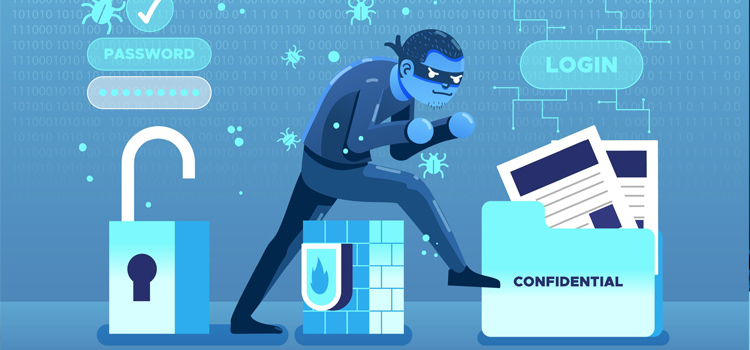Understanding the Importance of Cybersecurity Laws in Safeguarding Digital Assets
Posted On : July 13, 2023

Table of Contents
Introduction
In our increasingly digitalized world, where data and information have become invaluable resources, the need for robust Cybersecurity measures has become paramount. The rise in cyber threats and attacks has led governments around the world to implement Cybersecurity laws and regulations to protect individuals, organizations, and nations from the devastating consequences of cybercrime. These laws play a crucial role in safeguarding our digital assets and ensuring the integrity, confidentiality, and availability of sensitive information.
Cybersecurity laws are designed to address the evolving landscape of cyber threats and provide a legal framework to combat them effectively. They establish guidelines, standards, and penalties for individuals and organizations, promoting responsible behavior in cyberspace. Here, we delve into the significance of Cybersecurity laws and their role in protecting digital assets.
-
Protecting Personal Privacy
Personal data is now a valuable resource in the digital age. Cybersecurity laws help safeguard personal data by imposing strict regulations on its collection, storage, and use. These laws require organizations to implement robust security measures, such as encryption and access controls, to protect individuals' personally identifiable information. They also define the rights and responsibilities of both individuals and organizations concerning the handling of personal data. -
Protection against Cyber Threats
Cyber threats, such as hacking, data breaches, identity theft, and ransomware attacks, are a constant menace in today's digital landscape. Cybersecurity laws provide a legal framework to combat these threats effectively. They define offenses and penalties for unauthorized access, data theft, and other malicious activities. By enforcing these laws, governments can deter cybercriminals and hold them accountable for their actions, thereby safeguarding digital assets and preserving the trust of individuals and organizations in the online environment. -
Promoting Data Privacy
The proliferation of personal and sensitive data in the digital realm has raised concerns about privacy. Cybersecurity laws play a crucial role in protecting data privacy by regulating its collection, storage, processing, and sharing. These laws often require organizations to obtain explicit consent from individuals before collecting their data, and they establish strict rules for data handling and security measures. By ensuring the privacy of personal information, Cybersecurity laws empower individuals to maintain control over their data and mitigate the risks of identity theft and other privacy violations. -
Safeguarding Intellectual Property
Intellectual property (IP) is the lifeblood of many businesses and individuals. Cybersecurity laws provide legal protection against the theft, misuse, and unauthorized access to intellectual property. They encourage organizations to implement measures to safeguard trade secrets, patents, copyrights, and trademarks from cyber threats. By deterring IP theft and ensuring legal recourse, these laws foster innovation and promote economic growth. -
Preventing Cyber Attacks
Cybersecurity laws aim to prevent and deter cyber attacks by establishing regulations and penalties for perpetrators. They define various forms of cybercrime, such as hacking, identity theft, data breaches, and malware distribution, and outline the legal consequences for those who engage in such activities. By creating a strong deterrent effect, these laws discourage potential attackers, protecting individuals, businesses, and critical infrastructure from malicious cyber activities. -
Promoting National Security
In an interconnected world, Cybersecurity is a matter of national security. Cybersecurity laws enable governments to protect critical infrastructure, government systems, and classified information from cyber threats. They establish protocols for incident response, threat intelligence sharing, and cooperation between public and private entities to ensure a coordinated defense against cyber attacks. These laws empower nations to defend against cyber espionage, cyber warfare, and other threats to national security. -
Enhancing Business Confidence
Strong Cybersecurity laws instill confidence in the digital economy and foster trust among businesses and consumers. By setting clear guidelines for data protection and privacy, these laws help create a secure environment for online transactions and e-commerce. Compliance with cybersecurity regulations reassures customers that their information is handled responsibly, boosting their trust in businesses and driving economic growth. -
Facilitating International Cooperation
Cyber threats transcend national boundaries, making international cooperation crucial. Cybersecurity laws facilitate collaboration and information sharing between countries to combat cybercrime effectively. They establish mechanisms for extraditing cybercriminals, harmonizing legal frameworks, and facilitating joint investigations. Such cooperation strengthens global Cybersecurity efforts and promotes a unified response to transnational cyber threats. -
Promoting Cybersecurity Awareness
Cybersecurity laws often include provisions for education and awareness programs to promote Cybersecurity best practices. By educating individuals and organizations about the risks and preventive measures, these laws help build a cyber-literate society. Increased awareness leads to a proactive approach to Cybersecurity, with individuals and organizations taking necessary precautions to protect themselves and their digital assets. -
Promoting Innovation and Economic Growth
A robust Cybersecurity framework can foster innovation and economic growth. By instilling trust in the digital ecosystem, Cybersecurity laws provide a conducive environment for businesses to innovate and leverage emerging technologies. They assure individuals and organizations that their digital assets will be protected, thereby encouraging them to embrace digital transformation and invest in technology-driven initiatives. This, in turn, fuels economic growth, as businesses can explore new markets, improve productivity, and create jobs in the digital economy.
Conclusion
Cybersecurity laws are vital in safeguarding digital assets in our technology-driven world. They provide a legal framework to protect personal privacy, intellectual property, and critical infrastructure while preventing and deterring cyber attacks. These laws foster national security, enhance business confidence, promote international cooperation, and raise Cybersecurity awareness. By adhering to these laws and implementing robust Cybersecurity measures, individuals and organizations can navigate the digital landscape securely and preserve the integrity of their digital assets. To know more about protecting your digital assets from cybercrimes, you should consult a cyber law expert.
























